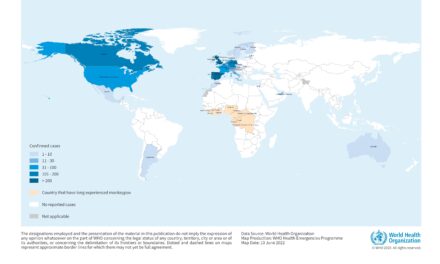A groundbreaking study published in Scientific Reports suggests that dietary intake of vitamin B3, also known as niacin, may significantly reduce the risk of all-cause mortality and cardiovascular disease (CVD)-related deaths among U.S. adults. This large-scale analysis could have important implications for health recommendations, especially in the context of heart disease prevention.
The Role of Niacin in Health
Niacin is a vital water-soluble vitamin that plays an essential role in various physiological functions, including metabolism and cellular repair. Deficiency in niacin can lead to severe conditions like pellagra, which causes dermatitis, diarrhea, dementia, and even death. While countries like the U.S. have implemented niacin fortification in foods such as cereals and flour to prevent deficiencies, many people already consume niacin in their daily diet through common foods like beef, chicken, coffee, and tea.
Known for its ability to improve lipid profiles, niacin has long been used to manage conditions like dyslipidemia. However, the “niacin paradox” has emerged, where improvements in cholesterol levels do not always correlate with better cardiovascular outcomes. This contradiction has fueled debate over niacin’s broader impact on long-term health, leading researchers to seek clarity on its role in mortality risks.
A Landmark Study
The study, which analyzed data from the National Health and Nutrition Examination Survey (NHANES) between 2003 and 2018, included 26,746 U.S. adults and tracked their health outcomes over an average of 9.17 years. Participants were divided into four groups based on their average niacin intake over two days, which was measured through dietary recall.
Out of the 3,551 deaths recorded during the study, 1,096 were attributed to cardiovascular disease. The researchers found a clear inverse relationship between niacin intake and both all-cause and cardiovascular mortality. Those with the highest niacin intake had significantly lower risks of dying from any cause, as well as from heart-related issues, compared to those with the lowest intake. Notably, the benefits of increased niacin intake plateaued once it surpassed an average daily intake of 22.45 milligrams.
Key Observations and Findings
The study revealed that the association between niacin intake and mortality risk was particularly pronounced in certain subgroups. For instance, non-diabetic individuals showed a stronger reduction in all-cause mortality risk. Similarly, the positive effects on cardiovascular health were more evident in older adults, women, non-Hispanic White individuals, and those with healthier lifestyle factors, such as not smoking or being free from hypertension and dyslipidemia.
Interestingly, the research also highlighted that individuals with higher niacin intake tended to be younger, more educated, and more likely to consume alcohol, which suggests that dietary habits and lifestyle choices may influence the overall health benefits of niacin.
The Science Behind Niacin’s Benefits
Niacin’s impact on reducing mortality may stem from its role in boosting levels of nicotinamide adenine dinucleotide (NAD), a key coenzyme in cellular metabolism. As an NAD precursor, niacin enhances mitochondrial function, improves cellular energy production, and reduces inflammation, DNA damage, and cellular aging. These biological processes may help explain the observed benefits for longevity and heart health.
Additionally, niacin is well-known for its lipid-lowering effects. By reducing levels of “bad” low-density lipoprotein (LDL) cholesterol and raising “good” high-density lipoprotein (HDL) cholesterol, niacin can improve cardiovascular outcomes. However, some research also suggests that niacin-derived metabolites may activate inflammatory pathways that could pose a risk in certain contexts, underscoring the need for further studies to explore the balance between its benefits and potential risks.
Implications for Public Health
The findings from this study are significant because they suggest that increasing dietary niacin intake could be a simple and effective way to reduce the risk of early death, especially from heart disease. However, the researchers caution that niacin’s effects may vary across different populations. In particular, while it may be beneficial for non-diabetic individuals, niacin may increase the risk of diabetes by raising blood glucose levels and lowering insulin sensitivity. Therefore, people with diabetes may not benefit from higher niacin intake in the same way.
The study opens the door to further investigations into niacin’s broader health benefits and potential as an accessible intervention for improving public health. As the role of niacin in long-term health outcomes becomes clearer, experts may revisit dietary guidelines to reflect these new insights.
For now, it seems that the secret to a longer, healthier life might just be in a daily dose of niacin — found naturally in many of the foods we eat.
Reference: Lin, L., Chen, S., Zhang, C., Li, L., Chen, Y., Li, D., Cai, Q., Zhou, X., & Yang, F. (2024). Association of dietary niacin intake with all-cause and cardiovascular mortality: National Health and Nutrition Examination Survey (NHANES) 2003–2018. Scientific Reports, 14(1), 1-12. DOI: 10.1038/s41598-024-79986-9.










